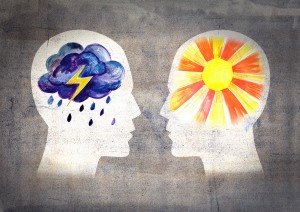
Psychiatric Problems Associated with Heroin Dependence
Addiction specialists have long observed that people struggling with opiate dependence are more likely to also have a co-occurring mental health problem. There are several potential explanations for this phenomenon. First, people with psychiatric issues are more likely to use heroin in an attempt to dull their emotional or psychological pain. Alternatively, long-term heroin use alters associations in brain areas associated with emotional processing. Therefore, this suggests that heroin use may trigger psychiatric problems. Finally, it’s possible that both addiction and psychiatric problems share an underlying genetic or brain mechanism.
A recent study conducted at the University of Pisa in Italy explored the association between substance use disorders and psychiatric issues. The researchers used a tool called the Symptom Checklist-90, which assesses five dimensions of psychopathology: 1) worthlessness and being trapped; 2) somatization, or physical problems triggered by psychological issues; 3) sensitivity or psychotic behaviors; 4) panic and anxiety; and 5) violence or suicidal tendencies. The scientists wanted to identify whether people who had undergone detox versus those who had not.
The study found that the people who hadn’t undergone opiate detox were more likely to endorse psychiatric problems than those who had completed detox. Additionally, the somatic, or physical, symptoms were most helpful in segregating the two groups. People who hadn’t gone through the detoxification process were more likely to say that they had these physical problems.
For over 25 years, people from all over the world have chosen Waismann Method as their opioid detox provider.
We know the challenges you face and the importance of creating a unique and personal experience for you right from the start.Call for Detox Options 1-800-423-2482
Overall, the researchers concluded that people who had gone through detox had significantly lower psychiatric symptoms, compared to those who were still actively using opioids. This is an important finding, given that people did not receive specific post-detox treatment to address the psychiatric factors. Simply completing the detox process, may have placed patients at ease and alleviated some of their psychiatric problems.
How Heroin Dependence Treatment Programs Must Deal With Psychiatric Factors
Given the high rate of psychiatric factors co-occurring with heroin dependence, treatment providers must be prepared to address psychological problems. Frequently, rehab facilities perform a cursory assessment of prospective patients and neglect their psychological status. This can cause people to drop out of treatment or have a short-lived recovery, because they have not addressed many of the psychological issues that may have been fueling addiction.
At the Waismann Method Center, we recognize the importance of psychiatric factors in triggering and perpetuating heroin dependence. As a result, we perform a thorough medical and individualized assessment for each patient who walks through our hospital doors. By acknowledging patients’ psychological issues, medical and heroin dependence history, we can create an individualized treatment plan that helps them overcome these challenges.
Importantly, the Waismann Method® treatment center, provides medical opiate detox or accelerated rapid detox to patients from all over the world. The 2015 study from Italian researchers suggested that this may alleviate some psychiatric issues. Furthermore, the Waismann Method offers an exclusive post-detox facility, the Domus Retreat, for clients who have completed the detox process. At the Domus Retreat, clients receive full meal service, housekeeping, and other amenities. These services make their stay comfortable, allowing them to focus on recovery. Through individual psychotherapy, therapeutic massage, drug counselors, biofeedback, and other practices, individuals at the Domus Retreat have the chance to be properly assessed and guided in order to overcome psychiatric problems. After all, this comprehensive approach to physical, psychological, and emotional health is what sets the Waismann Method Medical Group apart from all other heroin dependence treatment centers.
Sources
Today’s Heroin Epidemic. Centers for Disease Control and Prevention. Retrieved September 2, 2015.
Psychopathological symptoms of patients with heroin addiction entering opioid agonist or therapeutic community treatment. Annals of General Psychiatry. Retrieved September 2, 2015.
Psychopathological symptoms in detoxified and non-detoxified heroin dependent patients entering residential treatment. Heroin Addiction & Related Clinical Problems. Retrieved September 2, 2015.





